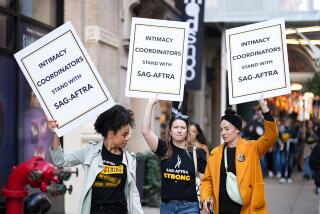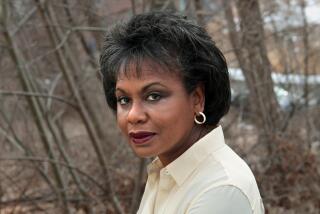Women in animation industry demand change in Hollywood amid sexual harassment scandal
The sexual abuse scandal that has engulfed Hollywood following the downfall of movie mogul Harvey Weinstein has prompted hundreds of women in the animation industry to speak out about what they call a pervasive problem of sexism in their business.
This week, women and gender nonconforming people in the animation industry sent an open letter to major and independent studios demanding that they do more to stop sexual harassment and discrimination in an industry that has long been dominated by men. The letter was signed by 217 animation professionals, including writers, artists and studio executives.
The women said harassment is widespread in their industry and they are frequently subjected to crude sexual remarks and unwanted romantic or sexual overtures.
“We write this letter with the hope that change is possible, and ask that you listen to our stories and then make every effort to bring a real and lasting change to the culture of animation studios,” said the memo, which was sent to studios including Warner Bros., DreamWorks Animation, Paramount, Disney and Cartoon Network.
The idea for the letter came after women in animation started discussing their stories of abuse and harassment online in the wake of allegations against Weinstein, who was fired from his own company Oct. 8. Accusations of rape and forcible sex acts have resulted in criminal investigations into Weinstein in Los Angeles, London and New York.
The revelations have prompted complaints of sexual harassment against other high-profile Hollywood figures including Roy Price, the head of Amazon Studios, who resigned this week following claims that he had sexually harassed a producer of one of the company’s shows.
Now the animation industry -- a key driver of profits for the major studios -- is grappling with the issue. Nickelodeon on Thursday fired Chris Savino, the creator of its kids series “The Loud House,” after multiple sexual harassment allegations were made against the producer.
That has further galvanized the animation industry to talk about abuse. Animation has long been known as a small and tightknit, though competitive, community within Hollywood. It’s also known as a “boys club,” where more than three-quarters of the Animation Guild’s 3,395 members are men.
The mentality goes back decades. Several people interviewed by The Times referenced a much-circulated 1938 rejection letter from Disney Studios to a prospective female animator that claimed women weren’t suited to creative work.
“[The industry] has a long history of exclusion,” said Shadi Petosky, co-creator of the Amazon series “Danger & Eggs,” who signed the memo. “Most animated shows have been created by men.”
In their letter, the women laid out several steps for the industry to take, calling on every studio to investigate all reports of harassment and take them seriously. The animators also urged men in the industry to speak up for their female colleagues.
In addition, they demanded that the Animation Guild, which represents animators, take steps to fine, suspend and expel members whose conduct is detrimental to the guild, and create an anti-harassment and discrimination committee.
Among the more than 200 names who signed the letter are Rebecca Sugar, creator of Cartoon Network’s “Steven Universe”; Fox’s “Bob’s Burgers” writer and producer Wendy Molyneux; and contributors to multiple animated projects such as “BoJack Horseman,” “The Powerpuff Girls” and “Adventure Time.”
“Most of our colleagues have experienced harassment or discomfort in the workplace,” said Megan Dong, supervising director of “Pinky Malinky” at Nickelodeon who also signed the letter. “We thought it would be better to be more proactive.”
KC Johnson, the new president of the Animation Guild, was one of the people who signed the letter and voiced strong support for the authors’ goals. She said the union is carefully looking for ways it can address the issue, including creating a committee to hear complaints from animators.
“We’re working to make sure our members have safe workplaces,” Johnson said.
The problems in the animation industry were thrust into the open recently when Savino was accused of misconduct by multiple women. Nickelodeon fired Savino, 46, after sexual harassment allegations surfaced against the producer. The website Cartoon Brew, which covers the animation industry, reported that as many as 12 women have come forward with allegations against Savino.
Among those is “BoJack Horseman” director Anne Walker Farrell, who wrote on Twitter that she was harassed by Savino when she was 20, using the “me too” hashtag.
In response to the fallout from the allegations, studio heads have sent companywide memos encouraging employees to contact managers and human resources, and call anonymous hotlines to report misconduct.
“It is incumbent upon all of us to raise concerns that we see or hear of, and the company provides multiple avenues to do so, including the option to remain anonymous,” said DreamWorks Animation leaders Chris deFaria and Margie Cohn in a note to staff.
Nickelodeon Group President Cyma Zarghami sent a memo to staff encouraging employees to come forward when they face uncomfortable situations at work.
“In the current climate, it feels necessary to say that if you should encounter an uncomfortable situation at work, or witness one, you are safe to speak up,” she said. “If you hear something, and are unsure of what to do, you are safe to tell your supervisor or human resources. If you need help, in any way, you are safe to ask for it.”
Representatives of Disney-Pixar, 20th Century Fox and Sony declined to comment on the women’s memo.
One solution to the problem is to actively hire more women, said Molyneux, the “Bob’s Burgers” writer. She said she has not experienced the kind of abuse described in the letter, but signed it in solidarity with women whose stories she’s heard for years. More representation in the workplace could make women feel safer coming forward with allegations, she said.
“It’s really hard to talk about these issues, especially for women just starting out,” she said. “I’d love to see more aggressive hiring of women. The more gender balance there is in the room, the more empowered women will feel.”
UPDATES:
5:20 p.m.: This article has been updated with a quote from Nickelodeon Group President Cyma Zarghami.
This article was originally published at 4:45 p.m.
More to Read
Inside the business of entertainment
The Wide Shot brings you news, analysis and insights on everything from streaming wars to production — and what it all means for the future.
You may occasionally receive promotional content from the Los Angeles Times.












